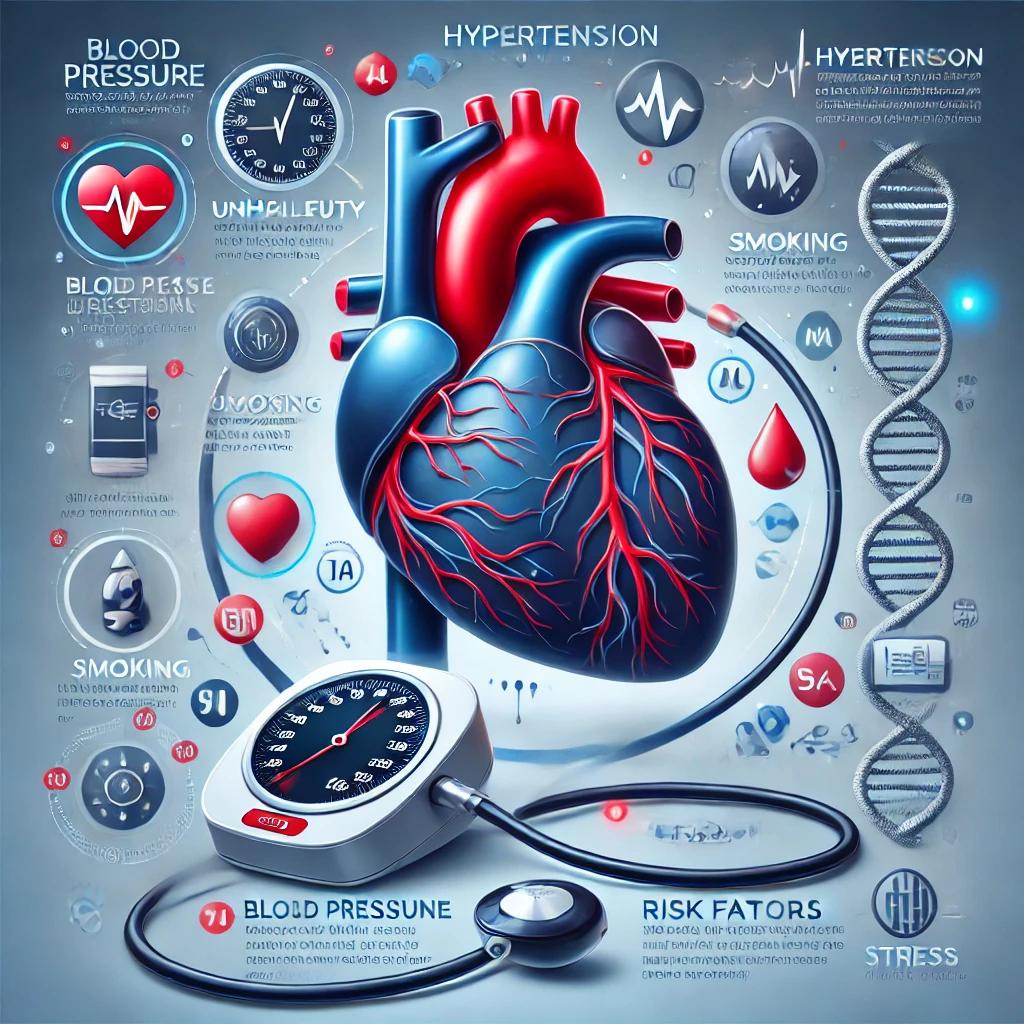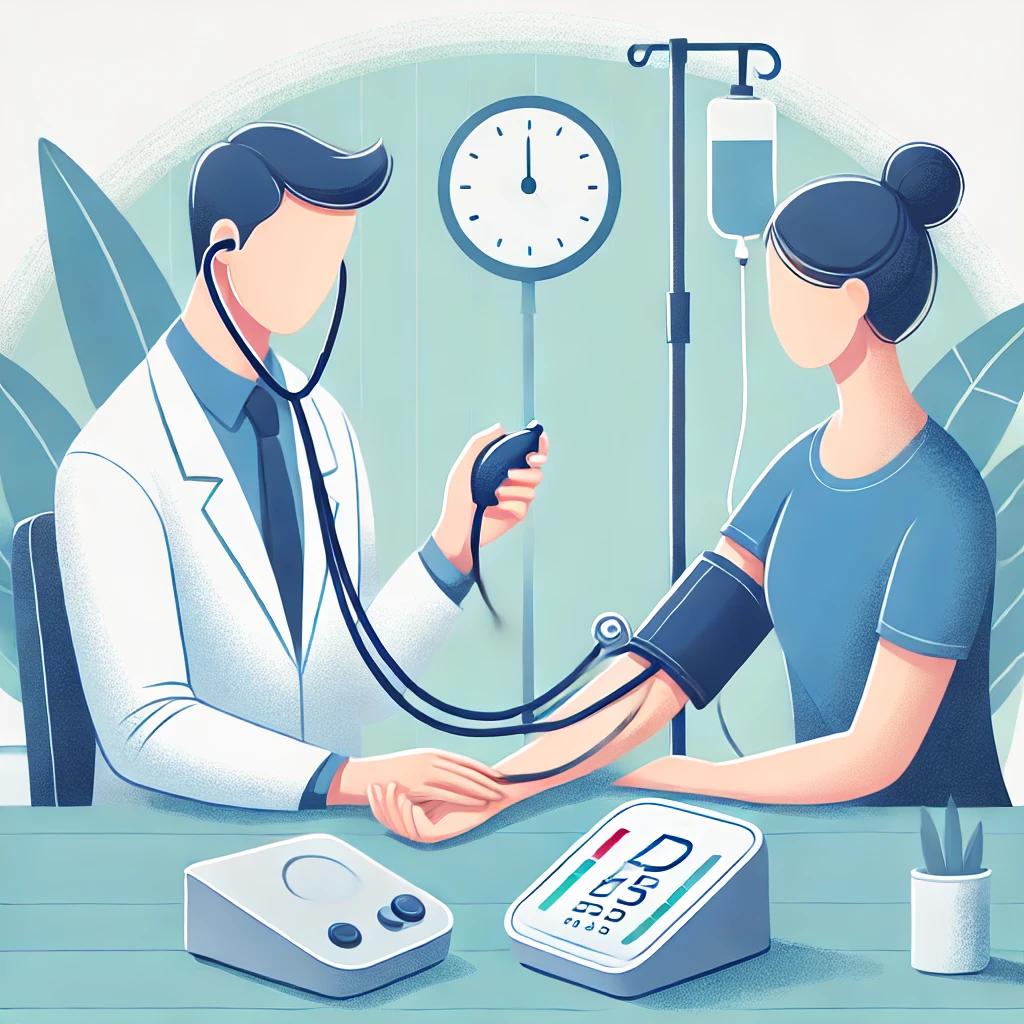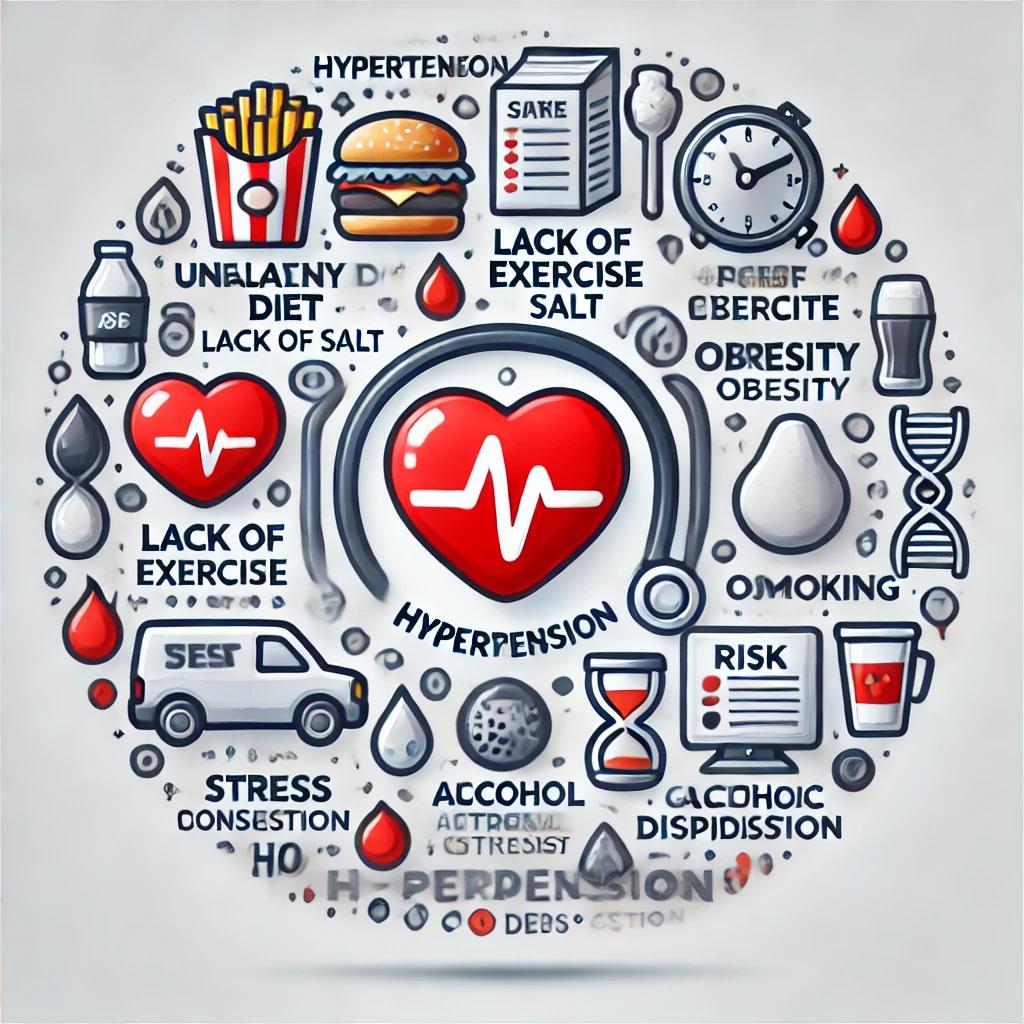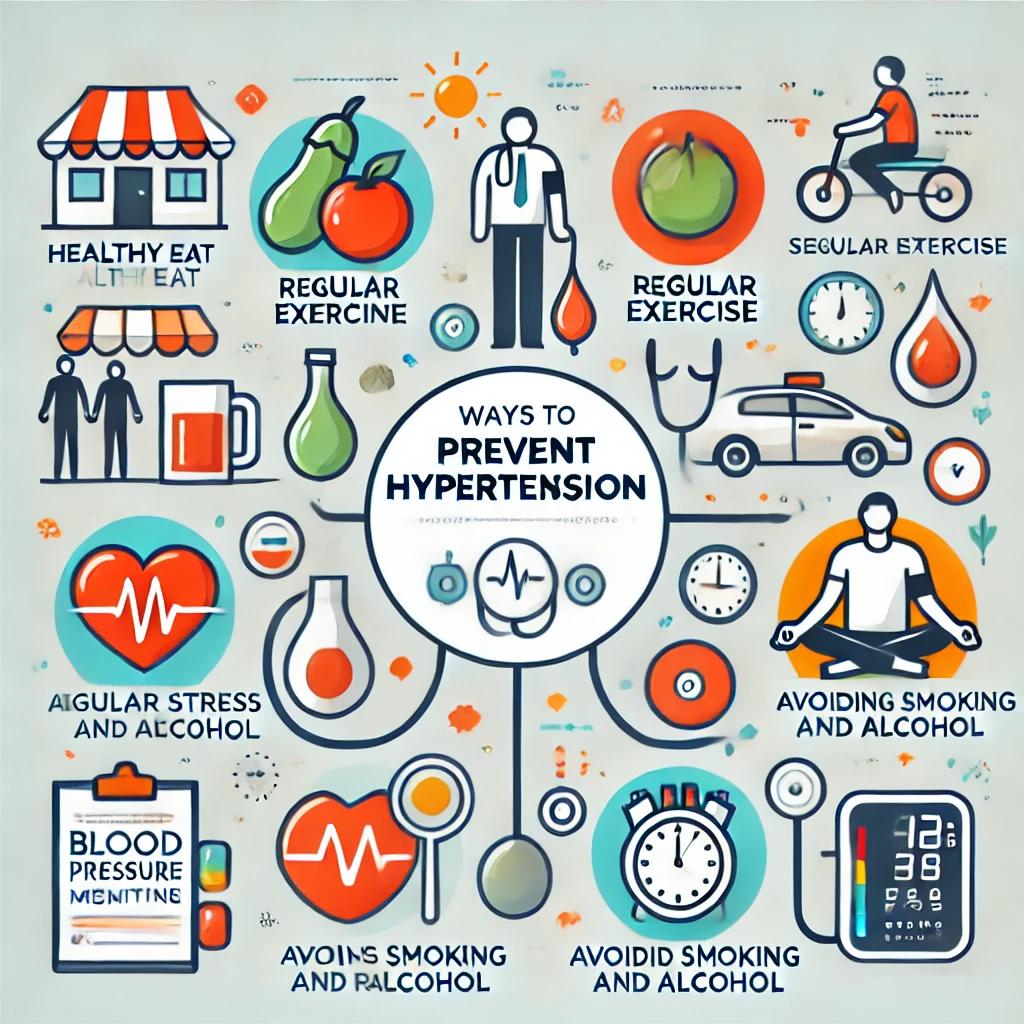
Hypertension, commonly known as high blood pressure, is a silent but serious health condition that affects millions of people worldwide. If left unmanaged, it can lead to severe complications such as heart disease, stroke, kidney failure, and other life-threatening conditions. Despite its prevalence, many people are unaware of its risks, causes, and how to manage it effectively. In this blog, we will explore hypertension, its causes, prevention strategies, and treatment options.
What is Hypertension?
Hypertension occurs when the force of blood against the artery walls is consistently too high. Blood pressure is measured in millimeters of mercury (mmHg) and is recorded in two numbers:

- Systolic pressure (the top number): The force of blood when the heart beats.
- Diastolic pressure (the bottom number): The force of blood when the heart is at rest between beats.
A normal blood pressure reading is around 120/80 mmHg. A reading above 130/80 mmHg is considered high and may require medical attention. Hypertension is often called the “silent killer” because it typically has no noticeable symptoms until it reaches a severe stage.
Types of Hypertension
There are two main types of hypertension:
Primary (Essential) Hypertension:
This is the most common type and develops gradually over time with no identifiable cause. It is often linked to lifestyle factors such as poor diet, lack of exercise, and genetics.
Secondary Hypertension:
This type occurs due to an underlying medical condition such as kidney disease, thyroid problems, or certain medications. Unlike primary hypertension, secondary hypertension can often be resolved by treating the underlying cause.
Causes and Risk Factors

Several factors contribute to the development of hypertension, including:
Genetics:
Family history plays a significant role in determining one’s likelihood of developing hypertension.
Unhealthy Diet:
High salt intake, processed foods, and low potassium levels contribute to high blood pressure.
Lack of Physical Activity:
Sedentary lifestyles increase the risk of hypertension and other cardiovascular diseases.
Obesity:
Being overweight puts extra strain on the heart, leading to higher blood pressure.
Smoking and Alcohol Consumption:
Both can damage blood vessels and elevate blood pressure levels.
Stress:
Chronic stress can contribute to temporary and long-term increases in blood pressure.
Underlying Health Conditions:
Conditions such as diabetes, kidney disease, and hormonal disorders can lead to hypertension.
Age:
The risk of developing hypertension increases with age.
Excessive Caffeine Consumption:
Some studies suggest that consuming too much caffeine can cause temporary spikes in blood pressure.
Symptoms of Hypertension
Hypertension is often asymptomatic in its early stages, making regular monitoring essential. However, in severe cases, individuals may experience:
- Severe headaches
- Shortness of breath
- Nosebleeds
- Chest pain
- Dizziness
- Blurred vision
If you experience any of these symptoms, seek medical attention immediately, as they may indicate a hypertensive crisis.
Prevention Strategies

While some risk factors like genetics cannot be controlled, lifestyle changes can significantly reduce the risk of hypertension:
Maintain a Healthy Diet:
Reduce salt intake, eat more fruits and vegetables, and avoid processed foods.
Exercise Regularly:
Engage in at least 30 minutes of moderate exercise such as walking, jogging, or yoga daily.
Manage Stress:
Practice relaxation techniques such as meditation and deep breathing.
Limit Alcohol and Quit Smoking:
These habits can damage blood vessels and worsen hypertension.
Monitor Your Blood Pressure:
Regular check-ups can help detect early signs of hypertension.
Stay Hydrated:
Drinking sufficient water helps maintain blood pressure balance.
Get Enough Sleep:
Poor sleep patterns are linked to increased blood pressure.
Treatment Options
For individuals diagnosed with hypertension, treatment often includes a combination of lifestyle changes and medications:
Lifestyle Modifications:
A healthy lifestyle can sometimes be enough to control blood pressure without medication.
Medications:
Doctors may prescribe antihypertensive medications such as diuretics, beta-blockers, ACE inhibitors, or calcium channel blockers, depending on the patient’s condition.
Regular Monitoring:
Keeping track of blood pressure readings at home and consulting a doctor regularly can help manage the condition effectively.
Weight Management:
Losing excess weight can help lower blood pressure.
Reduce Sodium Intake:
Cutting down on salt can help maintain healthy blood pressure levels.
Increase Potassium Intake:
Foods rich in potassium, such as bananas, oranges, and spinach, help counteract the effects of sodium.
Complications of Untreated Hypertension
If left unmanaged, hypertension can lead to severe health issues, including:
Heart Attack and Stroke:
High blood pressure can cause arteries to harden and narrow, increasing the risk of cardiovascular diseases.
Kidney Damage:
Excessive pressure on the kidneys can lead to kidney failure.
Vision Loss:
Hypertension can damage the blood vessels in the eyes, leading to blindness.
Cognitive Decline:
Chronic hypertension is linked to an increased risk of dementia and cognitive impairment.
Conclusion
Hypertension is a major health concern that should not be ignored. With the right lifestyle choices, regular monitoring, and, if necessary, medical intervention, it can be effectively managed. By taking proactive steps, individuals can protect themselves from severe complications and lead healthier lives.
If you or someone you know is at risk of hypertension, consult a healthcare professional for personalized guidance and treatment.
For high-quality pharmaceutical products related to hypertension management and other health concerns, visit our website: www.brpharmaproducts.com.
Looking for reliable third-party manufacturing of allopathic medicines? BR Enterprises (A Pharmaceutical Company) specializes in high-quality tablets, capsules, syrups, creams,and ointments. Contact us today for all your pharmaceutical needs!
📞 Call us at:9340281001
📧 Email us at: brenterprises6773@gmail.com
🌐 Visit: www.brpharmaproducts.com
Stay informed, stay healthy!
